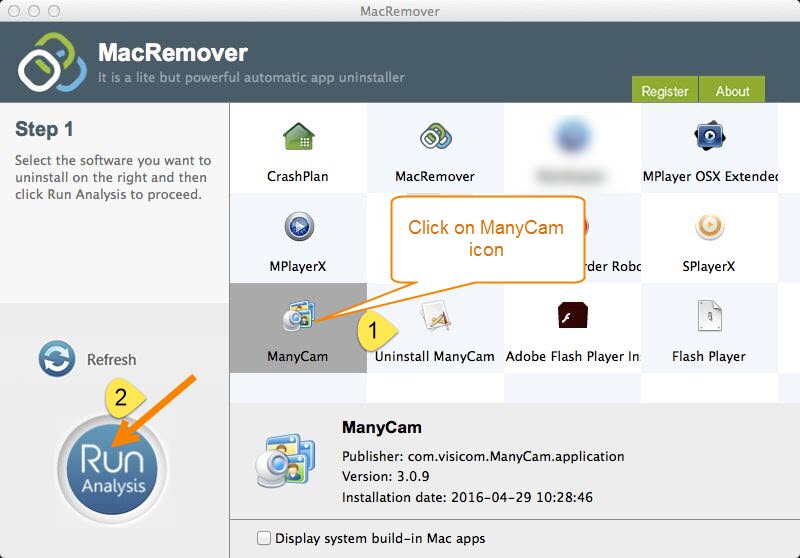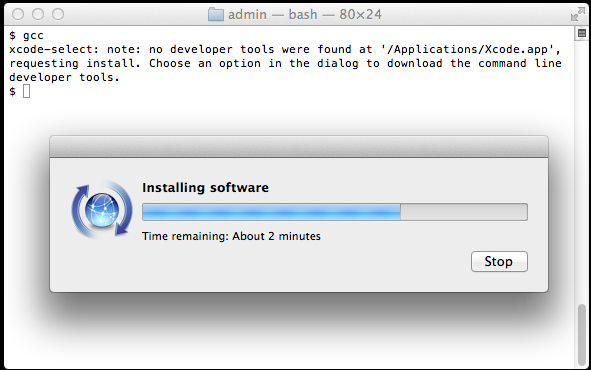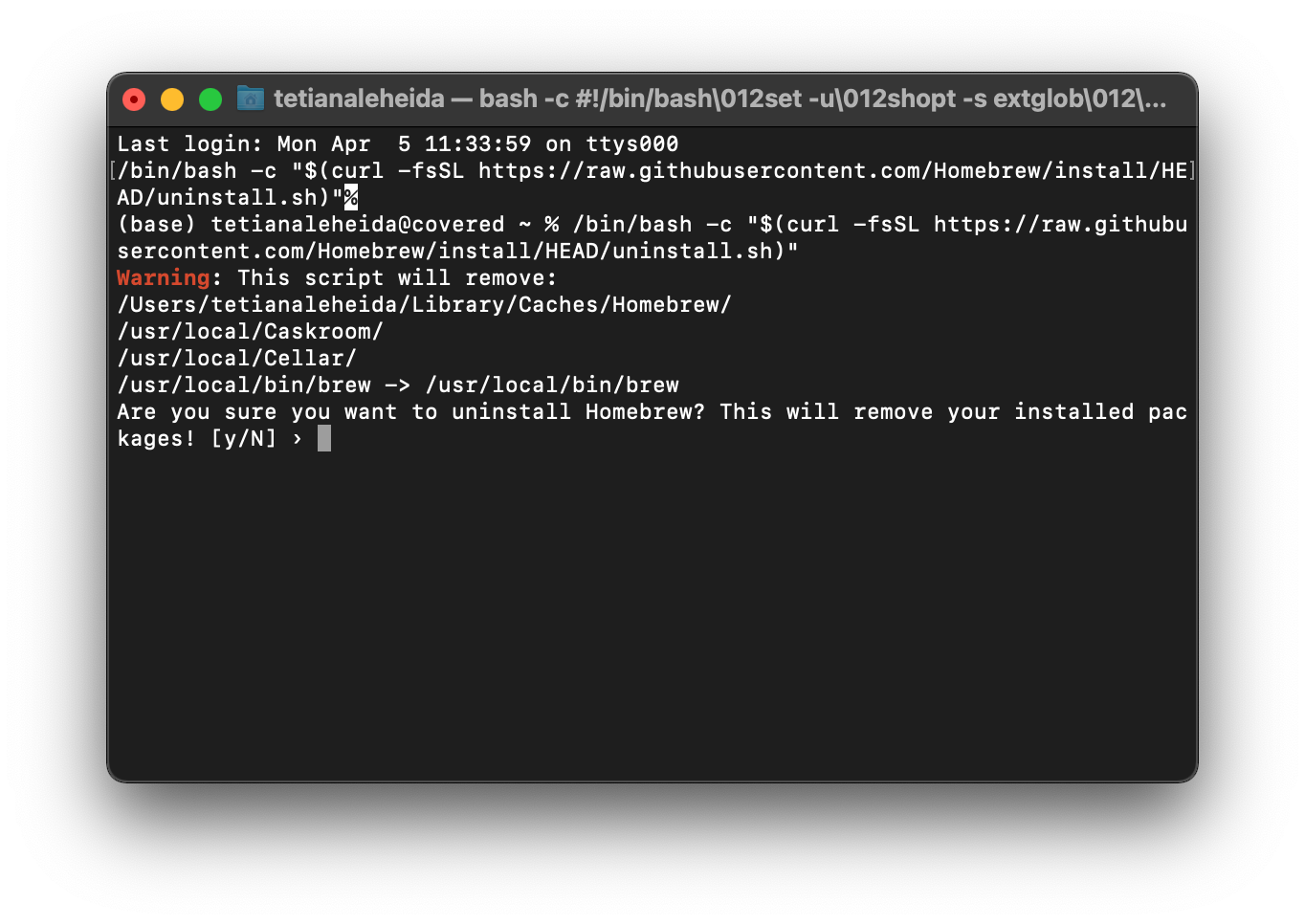

- UNINSTALL HOMEBREW FOR MAC HOW TO
- UNINSTALL HOMEBREW FOR MAC INSTALL
- UNINSTALL HOMEBREW FOR MAC SOFTWARE
- UNINSTALL HOMEBREW FOR MAC PASSWORD
- UNINSTALL HOMEBREW FOR MAC DOWNLOAD
Uninstall/Remove Homebrew For MacOS Catalina, MacOS Big Sur, MacOS Majoveįor the latest version of the MacOSX operating systems where the X can be Catalina, Big Sur, or Majove the Bash script is provided for uninstallation or removal.

UNINSTALL HOMEBREW FOR MAC DOWNLOAD
But we will use the curl command from the command line interface in order to download it automatically and easily and then run with bash or ruby. The uninstall or remove script on the homebrew is provided on its own and can be downloaded from the GitHub repository. In order to remove or uninstall the homebrew, we can use the ruby and bash commands. While saying MacOSX it can be different versions of the Apple laptop and desktop computers which are also called Mac or MacOS. There are different ways to uninstall or remove the homebrew package management tool from the MacOSX.
UNINSTALL HOMEBREW FOR MAC HOW TO
In this tutorial, we will learn how to uninstall the homebrew from the MacOSX completely and remove it from Mac. Homebrew is very similar to the Linux counterparts apt and yum commands.
UNINSTALL HOMEBREW FOR MAC INSTALL
Homebrew provides an easy and flexible way to install 3rd party packages.
UNINSTALL HOMEBREW FOR MAC PASSWORD
Then, provide the password to confirm this operation as an admin. Type “ y” and press Enter to confirm the uninstalling.However, change the “ install.sh” to “ uninstall.sh” as shown below: /bin/bash -c "$(curl -fsSL )" Uninstalling Homebrew on macOS Now paste the command (that you copied in the first step) in the Terminal.Now search for Terminal and press the Enter key. Press the Command + Space Bar key to open the Spotlight.Opening Homebrew site and copying command Now copy the installation command that is shown on the home page. Open the Safari browser and then go to the Homebrew site (brew.sh).You can’t uninstall Homebrew and keep the packages. Note: Keep in mind that uninstalling Homebrew also uninstalls every package you installed. You can follow the detailed steps down below: This will run the uninstall script in your terminal and remove Homebrew from your system. The installation method has the “ install.sh” and the uninstalling method has the “ uninstall.sh” in the command. Both of them have similar commands, but only the script name difference. It is also done by using the Terminal on your system. Uninstalling Homebrew is similar to the installation method of Homebrew. You can also type the following command to check the installed version of Homebrew on your system. You will get the successfully installed message.Some of the components that you want to install will rely on Xcode’s Command Line Tool package.

You can run the “ xcode-select –install” command, and then try installing Homebrew again. Note: If it gives an error for Xcode command-line tool not being installed. Provide the password and press the Enter key to confirm the installation.
UNINSTALL HOMEBREW FOR MAC SOFTWARE
Important: You need to install Xcode development software from the Apple App Store before installing Homebrew. Once Homebrew installed, users will be able to easily install software like Ruby, Git, and Python. The user can place a Homebrew installation anywhere they like. It will not install the files outside of its prefix. The Homebrew will install all the packages to their own director and then symbolic links their files into /usr/local. Homebrew on macOS Installing Homebrew on macOS In this article, we will teach you about the installation and uninstallation of Homebrew in macOS. You will even need Homebrew to install the developer tools on your system. Homebrew is a pretty known package manager for macOS that lets you install a different type of software through the terminal. However, you may not have a good package manager that lets you install free and open-source software. Instead of using the mouse to interact, users will need to type commands as text and receive text-based feedback. The Command-line Interface is a text-based user interface through which users can interact with their computer.


 0 kommentar(er)
0 kommentar(er)
